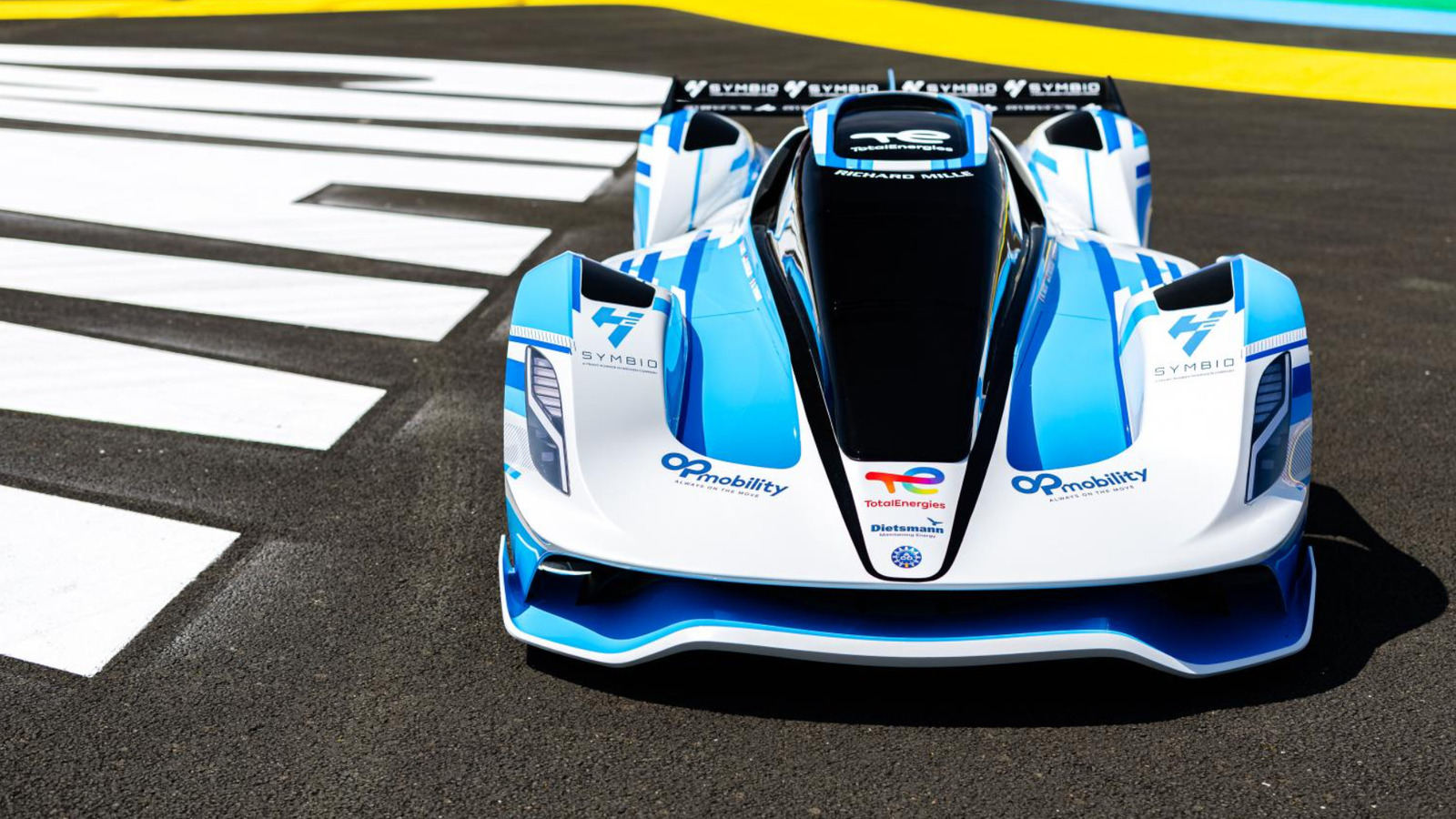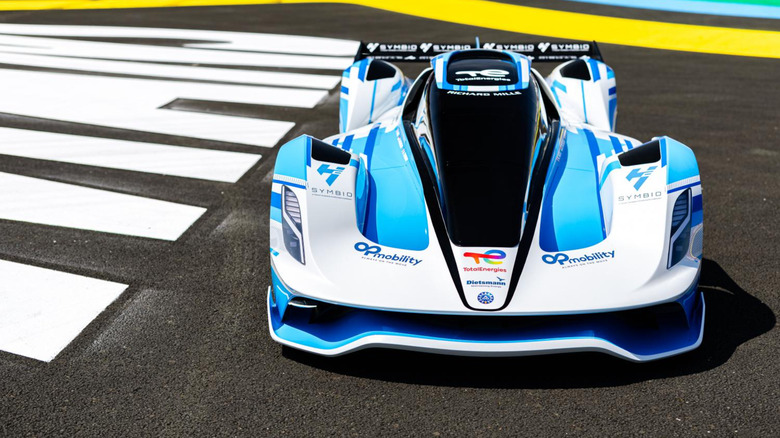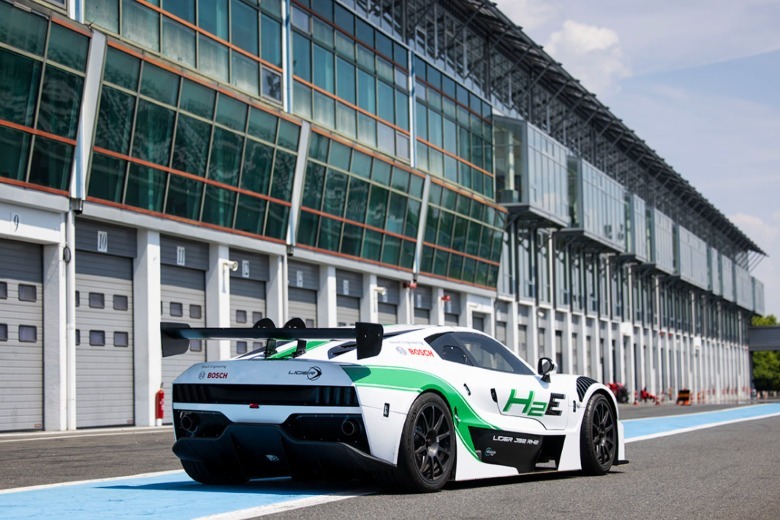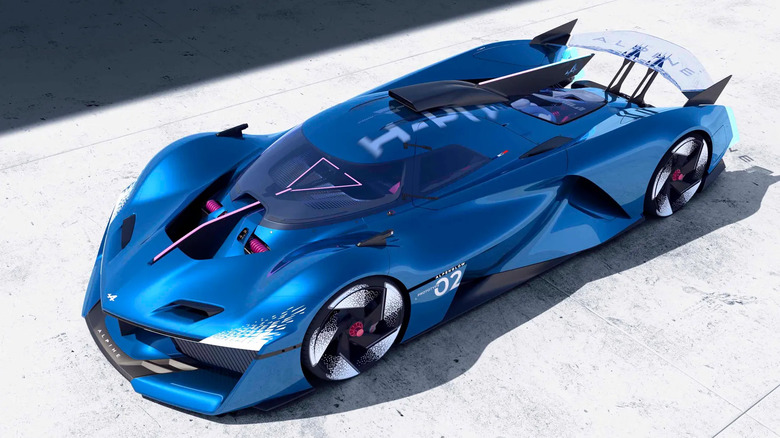Three new hydrogen racing prototypes will make their public debut together during this year’s running of the 24 Hours of Le Mans, displayed in the H2 Village, and taking part in on-track demonstration runs in the build up to the French endurance classic. These prototypes indicate the future of zero-emissions racing that the FIA and ACO are aiming toward with a new hydrogen-only category, scheduled to join the World Endurance Championship for the 2028 season, a full ten years after H24 Mission’s first hydrogen-powered race car hit the track. Alongside the H24EVO shown above, Alpine’s Alpenglow HY6 concept car and Ligier’s JS2 RH2 will make their bow.
Ligier, a French chassis manufacturer, has been deeply involved in hydrogen projects alongside the FIA since the project was announced. The green and white JS2 RH2 above is a compact GT-ish racer, based on the now-dead Ligier one-make race series JS2.R, with a 3-liter hydrogen combustion engine providing around 563 horsepower to the wheels, co-developed with Bosch in Germany. The Alpine Alpenglow HY6 is based on a Ligier-built LMP3 chassis with a twin-turbocharged 3.5-liter hydrogen combustion engine claimed to make 740 horsepower and 568 lb-ft of torque. The H24EVO is a development of the ACO’s hydrogen prototype effort began in 2022 and showed off at Le Mans in 2024, featuring an 872-hp electric motor powered by a Symbio hydrogen fuel cell inside a Portuguese Adess-developed LMP chassis. It’s smart that the three vehicles are running different form factors and different drivetrains, which we will hopefully see continue in the hydrogen class when the rubber meets the road.
Will it work?
“The objective we have set for ourselves is for the H24EVO to be the first FIA-homologated electric-hydrogen prototype and for it to present a level of performance equivalent to the best GT3s. To do this, we must integrate the latest technologies to have the necessary power,” says MissionH24 co-president Jean-Michel Bouresche.
If I had to guess, I’d say the Alpenglow HY6 is likely to be the fastest of the three cars out of the gate, given the comparative lightweight properties of a hydrogen combustion prototype over a fuel cell EV, in spite of its power disadvantage to the H24EVO. It’ll be interesting to see the trio of cars hit the track, even if they won’t be running at speed. With some effort and engineering, perhaps soon the hydrogen machines will compete on level ground with their gasoline counterparts. Racing fans have thus far been somewhat unwelcoming to future technology, deriding hybrid and full-electric racing efforts as woke or whatever, but perhaps their enthusiasm can gather behind the momentum of hydrogen-burning race cars. Once again, time will tell.





